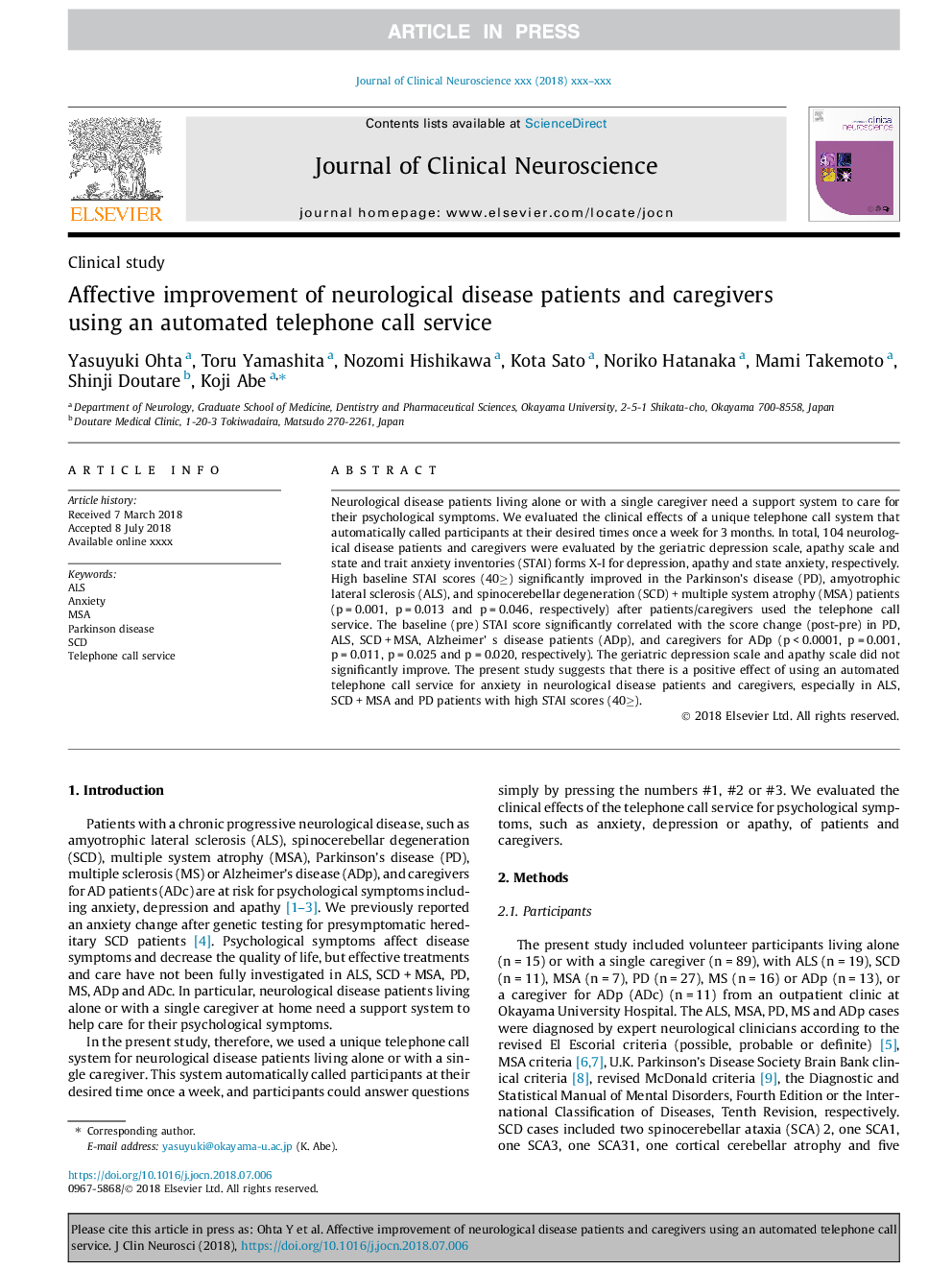| Article ID | Journal | Published Year | Pages | File Type |
|---|---|---|---|---|
| 11009507 | Journal of Clinical Neuroscience | 2018 | 5 Pages |
Abstract
Neurological disease patients living alone or with a single caregiver need a support system to care for their psychological symptoms. We evaluated the clinical effects of a unique telephone call system that automatically called participants at their desired times once a week for 3â¯months. In total, 104 neurological disease patients and caregivers were evaluated by the geriatric depression scale, apathy scale and state and trait anxiety inventories (STAI) forms X-I for depression, apathy and state anxiety, respectively. High baseline STAI scores (40â¥) significantly improved in the Parkinson's disease (PD), amyotrophic lateral sclerosis (ALS), and spinocerebellar degeneration (SCD)â¯+â¯multiple system atrophy (MSA) patients (pâ¯=â¯0.001, pâ¯=â¯0.013 and pâ¯=â¯0.046, respectively) after patients/caregivers used the telephone call service. The baseline (pre) STAI score significantly correlated with the score change (post-pre) in PD, ALS, SCDâ¯+â¯MSA, Alzheimer' s disease patients (ADp), and caregivers for ADp (pâ¯<â¯0.0001, pâ¯=â¯0.001, pâ¯=â¯0.011, pâ¯=â¯0.025 and pâ¯=â¯0.020, respectively). The geriatric depression scale and apathy scale did not significantly improve. The present study suggests that there is a positive effect of using an automated telephone call service for anxiety in neurological disease patients and caregivers, especially in ALS, SCDâ¯+â¯MSA and PD patients with high STAI scores (40â¥).
Keywords
Related Topics
Life Sciences
Neuroscience
Neurology
Authors
Yasuyuki Ohta, Toru Yamashita, Nozomi Hishikawa, Kota Sato, Noriko Hatanaka, Mami Takemoto, Shinji Doutare, Koji Abe,
